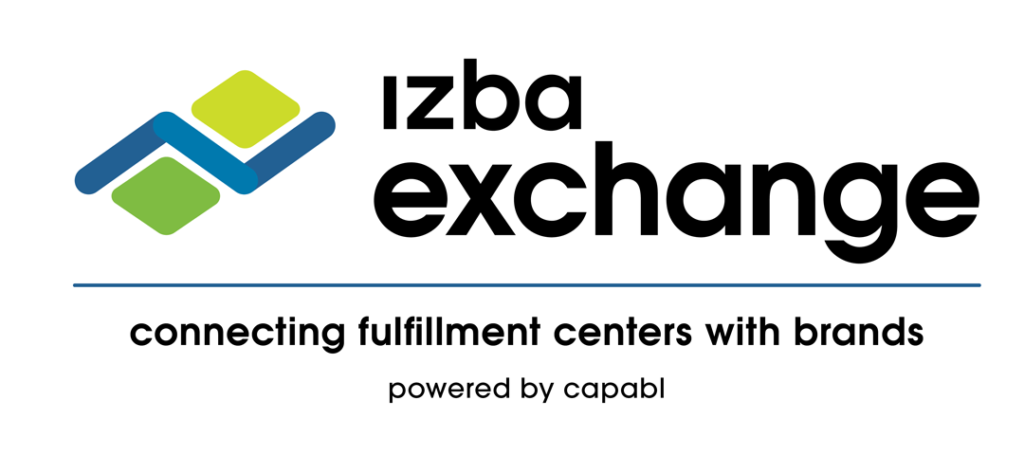
Who Is a Supply Chain Consultant?
Supply chain management is integral to running a business. The complexities it entails can not only be problematic to grasp but also cumbersome to handle, making it all the more difficult to manage businesses operating on a bigger scale.
It’s crucial to have an efficient supply chain in place with the right tools to manage it. And if you’re a business that’s recently felt the need to enlarge your operational scale, you’ll also require help and advice.
This is where supply chain consultants come in.
Bringing in expertise, networks and services that are relevant and instrumental in ensuring a regulated supply chain, supply chain consultants are professionals who work with companies to streamline processes like order management, shipping and logistics, fulfillment and more.
Supply chain consultants can vary from one another in terms of their operating capacity as well as their expertise. While some may offer you counsel and advice for global business expansion, others can have strong networks and can even handle parts of the supply chain management for you.
This also means that different types of consultants charge different prices. Therefore, you have to be careful when it comes to choosing a supply chain consultant for your business. Remember that any supply chain decision you make today, can and will have long-term ramifications so it’s important to be careful in choosing the right consultant for you.
To help you get started, let’s take a look at the types of different supply chain consultants and how they work.
Independent Supply Chain Consultants
Independent strategic consultants are the first type of consultants you’ll see in the market today. These are mostly experienced people who have had careers as C-level or VP-level managers and have a lot of knowledge.
Although some strategic consultants can also work as a firm or an agency, they only offer strategic advice, providing resources and business intelligence.
Mostly, you can choose to hire them or serve as full-time consultants to advise you. In between jobs, they can come in and look around at the way your business is working and present their ideas for improvement.
As experts with exposure, they can have connections but can’t be relied on to take on complete projects themselves or provide you with networks, especially if you’re looking to move to foreign lands.
Independent consultants can be easy to trust as it’s simple enough to understand whether an individual is really worth all the talk about them.
You can find independent consultants through referrals and contacts and work out deals with them to have them on your team or provide assistance and support in key areas and business decisions.
Who Should Hire Independent Supply Chain Consultants?
Businesses that are relatively new to the market and are exploring their options to deploy an effective supply chain or are looking to expand locally should get in touch with independent consultants.
Similarly, companies that are only just starting out and need help in establishing their supply chain from the get-go should definitely consider hiring a full-time independent consultant who can streamline their operations from the start.
Consultancies
“Consultancies” here can refer to any entity, whether an individual or a group of consultants, who aren’t hired on a full-time basis but instead, work on a project or hourly basis.
Those who work on a project or on an hourly basis mostly consist of a type we refer to as implementation consultants.
Implementation Consultants
Unlike others that provide strategic advice, implementation consultants move in and try to get the job done.
Rather than telling you what to do, these partners can take segments of your supply chain and become fully responsible for it. For example, if you hire an implementation supply chain consultant, they can offer to take responsibility for your warehouse or shipping operations.
With their experience and activity in the field, they’ll take on challenges and provide plausible solutions. While it’s possible to find individual implementation supply chain consultants, it’s mostly firms and agencies that take on the role.
That’s because when it comes to implementing supply chains, it takes a whole lot more than just knowledge and experience to get products moving.
You need to have the right tools, resources, networks, connections and communication to be able to deliver on your promises and that’s exactly what these consultants bring to the table.
Although implementation consultants can negotiate other forms of agreements with various parties, the most common type of agreement they use is taking a fixed percentage of spend or revenue generated as their fee.

Who Should Hire Implementation Supply Chain Consultants?
There comes a time in every growing and scaling business’ lifecycle when companies have to outgrow their local supply chain.
Expanding to other localities or across geographies are important milestones to remember in this regard because these are the times when your current supply chain will prove to be obsolete.
This is where you need to set yourself up in another location and since you’re not familiar with the place, you need help. And rather than seeking counsel, businesses can hire implementation supply chain consultants that are ready to help establish roots in the new market.
Not only will these professionals help lay infrastructural foundations, but they’ll also ensure that you’re able to scale quickly and widen your horizons even further.
Ensuring transparency while strategizing your business’ supply chain model, these consultants can bring about revolutionary changes or even just point you in the right direction where needed.
5 Things to Know When Choosing Supply Chain Consultants
1. Nobody Knows Everything
The first thing to know when you’re looking for a supply chain consultant is that nobody knows everything about everything.
That is to say, while someone may be well-versed with the phenomenon and general working principles of supply chain management, it doesn’t mean they’ll be equipped to take your business through every supply chain challenge it’ll ever face.
Having clear expectations of your consultants is important before you get into any sort of partnership. Of course, any responsible consultant will clearly lay out everything they can bring to the table.
And since it’s your business, you must have sufficient knowledge to be able to identify which consultants are more relevant to your business niche.
2. Identify Needs to Establish Goals
Another integral part of setting your expectations right is knowing what you need for your business. There are several phases that growing businesses go through and depending upon their industry, they can face several different issues such as managing supply chain operations.
Identifying key markets to enter may be easy, but knowing how to penetrate and laying out a strategic framework can be where strategists and implementation consultants are needed.
Being clear about the objectives you want to pursue will also help you gauge business performance impartially. It will also allow you to focus on other areas of your business more effectively while staying connected with your consultants to discuss segments they’re working on.
Depending on the type of consultant you partner with and the goal you want them to achieve, you can evaluate your business decisions in an effective manner.
3. Different Consultants, Different Expertise
As stated earlier, nobody knows everything about everything. However, all consultants do have peculiar sets of skills, networks, knowledge, exposure and experience that are specific to them.
While strategic consultants may only seem effective when providing resources for market evaluation and possible business decisions to take, they may also prove more effective in improving your overall business performance as well.
Sometimes, especially when businesses scale beyond a certain level, they require different types of consultants working together to achieve business goals.
As you’ll find later on, teams of consultants, preferably professionals that have worked together before always seem to be better than individual consultants hired at different times.
This is why bigger organizations always hire consultancies that can help them achieve certain objectives most adequately.
Since businesses require a vast array of expertise to streamline innovation, these agencies can consist of strategists as well as implementation consultants, sometimes appearing as a team of professionals that can work with you for a substantially longer time.
4. Communication and Trust
When in doubt, go with your gut. If you think that a consultant isn’t easy to communicate with or just doesn’t align with your ideas, feel free to change your mind as many times as needed.
It’s important to understand that a supply chain is one of the most sensitive components of a business and the worst part of it all is that any changes or decisions taken now are only going to show results in 2-3 fiscal quarters.
You will have to go through a long period of estimations, predictions and analyses before finding something substantial enough to regard as an evaluation.
5. Outsource the Work, Not the Responsibility
Simply put, retaining responsibility means having visibility. Whenever you hire help from a third party, ensuring visibility is a top priority and one of the simplest ways to do that is having the consultants you hire report to someone in your organization.
Should you find yourself dealing with consultants, you’ll need progress reports, and analytical findings to be presented to you at the earliest. Needless to say, you should be informed and asked whenever consultants are about to make business decisions or spend resources.
Moreover, it’s important to not let someone do everything for you without understanding and looking at what was done.
There may come a time when you have to undo or change routes, and implement new infrastructural changes and not having any idea of how things were put in place will make it disastrously difficult.
What Izba Can Offer You
Izba brings not only proven startup operator experience, but also Fortune 500 level expertise for credibility not found elsewhere.
Unlike the market, we don’t boast about things we don’t excel at, which is why we value being clear about our client’s objectives, business type, and geography.
Should we find clients for whom we aren’t a perfect fit, we offer advice and solutions to the best of our knowledge. Whether it’s helping businesses find ways to reduce government restrictions on upply chains or finding financing options, we’ll help you stay afloat and grow.
Having a team of experienced consultants who bring their individual expertise and collaborative efforts to the table makes Izba a consulting firm that you can trust to help you with:
International Logistics
Sourcing
Inventory Management
Tech Stacks
Quality
Scalability and much more!
Don’t hesitate to reach out to us and discuss your business goals with top-level experts specializing in helping companies and organizations scale beyond limitations.





2 thoughts on “Choosing A Supply Chain Consultant for Your Business”
Pingback: Reefer FTL vs LTL: Which is Better and For Who? - izba
Pingback: How to Find a Startup Consulting Firm in NYC? - izba